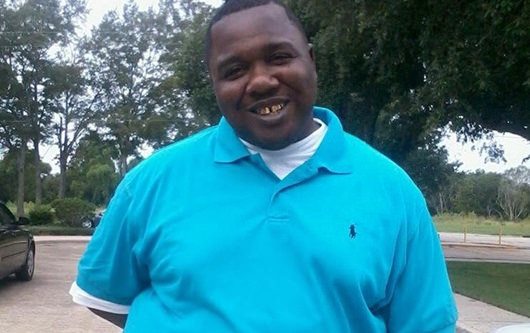
May 3, 2017; New York Times
Alton Sterling. Walter L. Scott. The U.S. Justice Department announced developments this week in cases involving the police killings of the two African American men. While one family will finally gain some closure, for the other, the heartbreak continues.
The news came as U.S. Attorney General Jeff Sessions’ leadership continues to create controversy and pushback from across the country, including his threats to cut DOJ funding for sanctuary cities and his plan to pause police reform consent decrees in cities like Ferguson, Cleveland, Baltimore, and Chicago.
According to the New York Times, on Wednesday, the Justice Department “declined to bring charges against two officers involved in the fatal shooting of a black Louisiana man, Alton B. Sterling. The announcement brought an end to what federal officials called an exhaustive investigation into the death of Mr. Sterling, who was killed on July 5th in the parking lot of a Baton Rouge convenience store where he often peddled CDs.”
“It was the unanimous decision of all the prosecutors and agents in this case that we simply did not have sufficient evidence to prove beyond a reasonable doubt that either officer violated the federal criminal civil rights laws,” Corey R. Amundson, the acting United States attorney here, said at a news conference Wednesday afternoon.
The DOJ had opened the investigation into the shooting of the father of five last summer. The country faced a scathing United Nations critique around the same time, which highlighted issues with excessive police force and ongoing racial discrimination. In November, leaders and members of the Black Lives Matter movement who protested Sterling’s murder settled with four Louisiana agencies in a federal class action lawsuit filed by the state’s ACLU and the New Orleans Workers’ Center for Racial Justice. Sterling’s aunt, Sandra Sterling, told a local TV station that the family’s “suffering still continues.”
In the second case, involving the death of Walter L. Scott, the recent news was much different. From the Times:
Sign up for our free newsletters
Subscribe to NPQ's newsletters to have our top stories delivered directly to your inbox.
By signing up, you agree to our privacy policy and terms of use, and to receive messages from NPQ and our partners.
A day earlier and some 700 miles away, Michael T. Slager, a former police officer in North Charleston, S.C., pled guilty to a charge of willfully using excessive force to deprive Walter L. Scott of his civil rights when he shot Mr. Scott as he fled on foot in April 2015. The two cases have been among the most explosive in the nation’s complex and emotional debate about race and policing…
Scott’s mother, Judy Scott, has forgiven Mr. Slager, who could possibly face a life sentence in prison, according to the Times.
Neither case is a precedent for how future investigations will be dealt with under Sessions, since both were holdovers from the previous attorney general, Loretta E. Lynch. Although there isn’t much optimism from civil rights advocates about the Department’s new leader, the Times noted that Sessions “has also explicitly said that bad police officers should be prosecuted.”
President Barack Obama’s administration also drew fire:
The Obama administration made a priority of giving sensitive use of force cases close scrutiny. But it also prompted criticism, and sometimes outrage, when it closed inquiries without bringing charges in cities like Minneapolis and Memphis and smaller locales including Ferguson, Mo., and Smyrna, Ga. Mr. Sessions’ department will almost certainly be forced to make similarly tough calls in the coming months.
Indeed, another tragic killing occurred over the weekend when a teenaged African American boy, Jordan Edwards, was shot by a police officer in Texas.—Anna Berry











